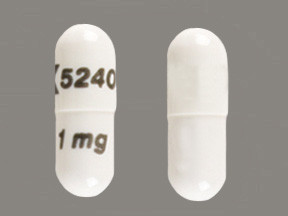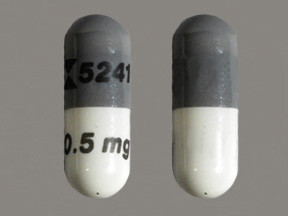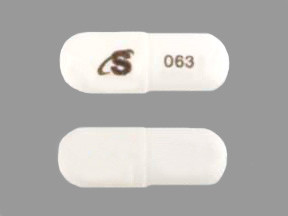ANAGRELIDE - ORAL
PHONETIC PRONUNCIATION: (an-AG-re-lide)
COMMON BRAND NAME(S): Agrylin
GENERIC NAME(S): anagrelide HCl
Uses
USES: Anagrelide is used to treat a certain blood disorder (thrombocythemia), which is caused by your bone marrow making too many platelets. Platelets are a blood cell that the body uses to form blood clots. Too many platelets can cause problems with your circulation, including unwanted blood clots and bleeding problems. This drug reduces the number of platelets in the bloodstream by blocking their production.
How to use ANAGRELIDE - ORAL
HOW TO USE: This medicine may come with a Patient Information Leaflet. Read it carefully if available. Ask your doctor, nurse, or pharmacist any questions that you may have about this medicine. Take this medication by mouth with or without food, usually 2 or 4 times a day or as directed by your doctor. Children or people with liver problems may start out by taking only 1 dose each day. Your doctor will adjust your dose, usually once a week, to find the best dose for you that keeps your blood counts closer to normal. The dosage is based on your medical condition and response to therapy. You should not take more than 2.5 milligrams in a single dose or more than a total of 10 milligrams in a day. Use this medication regularly in order to get the most benefit from it. To help you remember, take it at the same times each day. It is important to continue taking this medication even if you feel well. People with high platelets may not feel sick. Do not stop taking this medication without consulting your doctor. Stopping anagrelide will cause your platelets to go back up. Your doctor will check your blood counts regularly to monitor your progress and adjust your dose.
Side Effects
Precautions
Interactions
Overdose
Images

- color
- white
- shape
- oblong
- imprint
- logo and 5240, 1 mg

- color
- light gray
- shape
- oblong
- imprint
- logo and 5241, 0.5 mg

- color
- white
- shape
- oblong
- imprint
- 1453, 0.5 mg
Reviews
Faq for ANAGRELIDE - ORAL
Anagrelide is used to treat a certain blood disorder called thrombocythemia. It helps reduce the number of blood platelets, which can lower the risk of blood clotting.
Anagrelide works by inhibiting the production of platelets in the bone marrow, thereby reducing their number in the bloodstream.
Common side effects of Anagrelide can include headache, dizziness, nausea, diarrhea, abdominal pain, and muscle aches. Inform your doctor if these side effects persist or worsen.
Anagrelide is usually taken orally, with or without food, as directed by your doctor. The dosage and frequency of administration will depend on your specific condition. It is important to follow the instructions provided by your healthcare professional.
It is not recommended to take Anagrelide during pregnancy, as it may harm the unborn baby. It is also not known if Anagrelide passes into breast milk, so it is advised to consult with your doctor before breastfeeding while taking this medication.
Some medications may interact with Anagrelide and potentially increase the risk of side effects or affect its effectiveness. Inform your doctor about all the medications, herbal products, and supplements you are currently taking to avoid any potential interactions.
The effects of Anagrelide may vary depending on the individual and the condition being treated. It may take several weeks of regular use before experiencing the full benefits. Follow your doctor's instructions and discuss any concerns or lack of improvement with them.
It is important not to stop taking Anagrelide without consulting your doctor, even if you start feeling better. Your doctor will determine the appropriate duration of treatment based on your condition and may gradually reduce the dosage before discontinuing it.
If you miss a dose, take it as soon as you remember. However, if it is close to your next scheduled dose, skip the missed dose and continue with your regular dosing schedule. Do not double the dose to make up for a missed one.
Disclaimer
IMPORTANT: HOW TO USE THIS INFORMATION: This is a summary and does NOT have all possible information about this product. This information does not assure that this product is safe, effective, or appropriate for you. This information is not individual medical advice and does not substitute for the advice of your health care professional. Always ask your health care professional for complete information about this product and your specific health needs.

No Reviews Yet